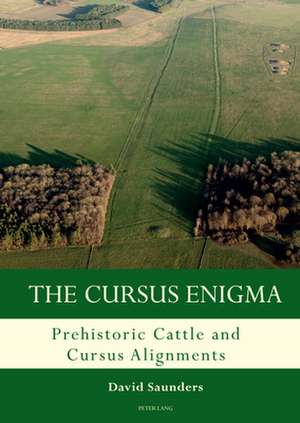Cursus Enigma: Studies in the British Mesolithic and Neolithic
Autor David Saundersen Limba Engleză Hardback – 25 feb 2021
Preț: 381.91 lei
Nou
Puncte Express: 573
Preț estimativ în valută:
73.09€ • 76.02$ • 60.34£
73.09€ • 76.02$ • 60.34£
Carte tipărită la comandă
Livrare economică 10-16 aprilie
Preluare comenzi: 021 569.72.76
Specificații
ISBN-13: 9781789977455
ISBN-10: 1789977452
Pagini: 222
Dimensiuni: 210 x 297 mm
Greutate: 0.79 kg
Editura: Peter Lang Copyright AG
Seria Studies in the British Mesolithic and Neolithic
ISBN-10: 1789977452
Pagini: 222
Dimensiuni: 210 x 297 mm
Greutate: 0.79 kg
Editura: Peter Lang Copyright AG
Seria Studies in the British Mesolithic and Neolithic
Notă biografică
David Saunders grew up in West Sussex in an area less than 50 metres from the River Arun. There the floodplains, meadows and cattle herds became part of his childhood playground. He read archaeology at the University of Buckingham, obtaining a doctorate investigating the interrelationships between prehistoric cattle herd movement and the placement of cursus monuments. He continues to take an active role in numerous archaeological excavations. He has spent the last six years excavating within the Stonehenge World Heritage Site at the Mesolithic site at Blick Mead, and for many years has played an active role in the University of Reading's annual archaeological field school, at excavations such as Marden Henge, the largest Neolithic henge site in the UK, at Cat's Brain, the first Neolithic Long Barrow to be excavated for over seventy years, and at the Bath House within the Roman town of Silchester. His interest in animal movement extends to the animals and signs depicted within Palaeolithic cave art, where he regularly acts as an expert guide on tours to the Dordogne region of France and the Cantabrian region of Northern Spain.
Descriere
This book links quantifiable cattle movement to mainstream archaeological research to highlight that areas of pasture affected by winter flooding correlate with the precise alignment and location of cursus monument sites. This suggests that cursus monuments commenced life as some form of cattle management system.


